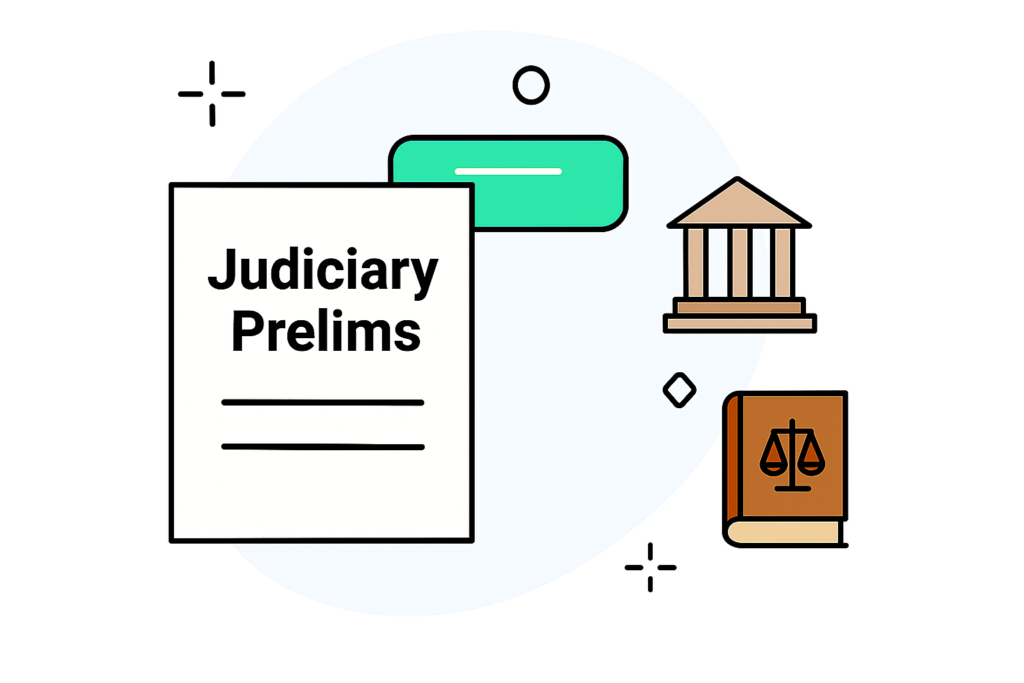Preparing for the Judiciary Prelims Exam? 📚 One skill that can be your biggest game-changer is effective note-making. With an ocean of legal concepts, case laws, and bare acts to navigate, it’s crucial to have a strategy that helps you organize information in a way that makes sense.
Mastering this skill allows you to retain better, revise faster, and approach the exam with confidence. A solid note-making system will not only enhance your learning but also ensure you’re fully prepared for D-day, giving you the edge over others.
Why Smart Notes = Smart Prep

Judiciary prep is intense, and a solid set of notes can be your superpower. Whether you’re tackling Indian Penal Code, Constitutional Law, or landmark judgments, concise, visual, and organized notes help you stay focused and less overwhelmed. Ready to get started? Let’s break it down👇
Note-Making Strategies That Actually Work
1. Understand the Syllabus & Exam Pattern
Start strong by knowing what to study. Go through the syllabus and past-year papers to identify high-frequency topics. These should take center stage in your notes.
2. Use Bullet Points & Lists
No one likes reading huge paragraphs. Break your notes into short, crisp bullet points so you can skim, scan, and revise in no time!
🧠 Example:
Section 84 BNS – Unsound Mind
- No criminal liability
- Lacks cognitive ability to understand nature of act
3. Focus on Key Facts
Ditch the fluff. Stick to core facts, bare provisions, and relevant case laws. The goal is clarity, not length.
4. Highlight Like a Pro
Use colors, underlines, or bold fonts to mark:
- Key sections
- Landmark judgments
- Important dates
This makes revision 10x quicker!
5. Mnemonics = Magic!

Struggling to remember tricky sections?
- Use mnemonics and acronyms to hack your memory.
- Eg: “DUMB” to remember defences:
- Duress, Unsound mind, Mistake of fact, Bona fide action.
6. Diagrams & Tables FTW
Turn dry theory into easy-to-digest visuals! Mind maps, tables, and flowcharts help lock concepts into your long-term memory.
Eg: Visualizing Fundamental Rights as a tree with branches like Right to Equality, Right to Freedom, etc.
7. Categorize Like a Boss
Divide your notes by:
- Subjects (Civil Law, Criminal Law…)
- Topics (Contracts, Torts…)
- Subtopics (General Exceptions, Defenses…)
This structure helps your brain organize and retrieve information faster.
8. Keep It Concise, Always!
If you can explain a concept in 3 lines, don’t write a page! Shorter notes = quicker revisions and less overwhelm before the exam.
9. Update Your Notes
The law evolves; so should your notes!
Regularly add:
- Recent case laws
- New amendments
- Current legal developments
10. Use Notes to Practice MCQs
Once your notes are ready, start solving MCQs from them. This helps you:
- Apply what you’ve written
- Identify weak areas
- Strengthen memory through repetition
Conclusion: Notes That Make You Unstoppable
The right note-making strategy turns Judiciary prep from a grind into a well-oiled success machine. Your notes should not only simplify complex laws but also help you retain, revise, and recall, exactly what the exam demands.
So law warriors, pick up that pen (or stylus!), open those books, and start creating notes that scream, “I’ve got this!”
💥 Want more expert tips, examples, and exclusive law notes?
Join the Edzorb Revolution & take your judiciary prep to the next level.










 Features
Features






